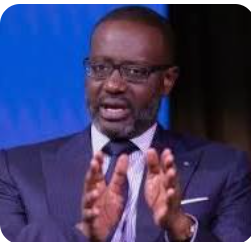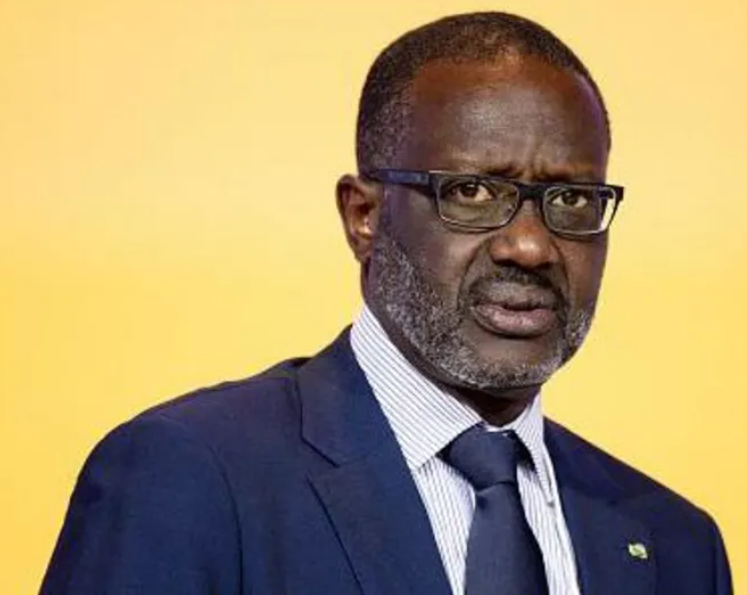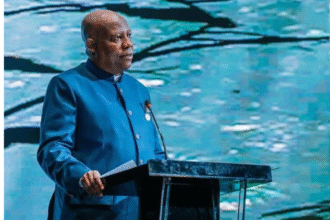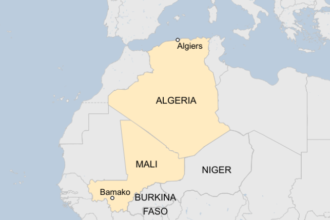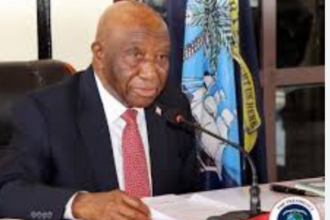By Lamin Guèye
Abidjan, Ivory Coast – Thousands of protesters gathered in Abidjan, Ivory Coast, on Saturday, and Sunday demanding the reinstatement of opposition leader Tidjane Thiam on the electoral list for the upcoming presidential election in October. Thiam, a former CEO of Credit Suisse, was barred from running by the electoral commission on June 4th.
Despite heavy rain, demonstrators peacefully assembled near the headquarters of the Independent Electoral Commission (CEI), the body responsible for organizing the vote. Dressed in the green and white colors of Thiam’s Democratic Party of Ivory Coast (PDCI), protesters held signs in support of their leader, chanting slogans such as “Corrupt justice” and “Thithi president.”
Thiam’s exclusion, along with three other prominent opposition candidates, stems from a court ruling earlier this year stating that he was ineligible due to his dual Ivorian-French nationality. While Thiam, born in Ivory Coast, acquired French nationality in 1987, he claims to have renounced it in March and has vowed to fight the decision.
“Beyond my own case, this is a movement to ensure democracy prevails in our country. I will soon be with you in Abidjan so we can continue this fight,” Thiam stated in a Facebook video, thanking protesters for their support despite his absence.
Senior PDCI officials were granted access to the CEI building to deliver a letter demanding the reinstatement of the excluded candidates. “We strongly denounce the arbitrary and unjust removal of President Thiam and other key opposition leaders from the electoral list,” PDCI Executive Secretary Sylvestre Emmou told reporters after the meeting.
The protest highlights growing dissent in the West African nation. The exclusion of opposition candidates, coupled with the anticipation of a ruling party congress later this month where President Alassane Ouattara is expected to announce his bid for re-election, has fueled unrest.
Ouattara has been in power since 2011 and is currently serving his third term. While the Ivorian constitution stipulates a two-term limit, Ouattara argues it doesn’t apply to him due to a 2016 constitutional referendum. He won a disputed election in 2020, which was boycotted by the opposition.
The situation has sparked fears of potential post-election violence, reminiscent of the crisis following a disputed vote over a decade ago, which resulted in the deaths of over 3,000 people. The pressure is mounting on the CEI and the government to ensure a fair and transparent election process to prevent further instability.
